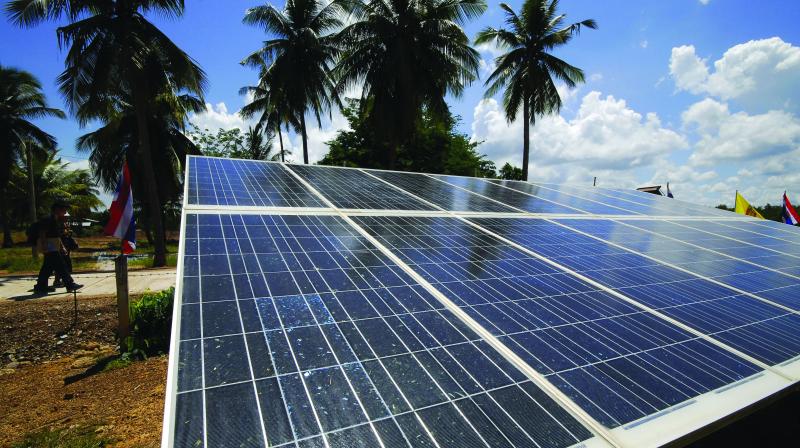Freak weather a new risk to renewable energy units
Extreme weather events seem to have become the latest risk to Prime Minister Narendra Modi\'s renewable energy goal.

New Delhi: India's ambitious plan to take the leadership position among nations as one of largest producers of renewable energy may have run into some unfavorable weather.
Freak climatic conditions are damaging renewable energy projects, threatening a business which survives on wafer-thin margins.
A storm in Rajasthan, known for its deserts and sunny days, tore through a solar park and blew away modules of developers. In the adjoining Madhya Pradesh, a generator found sections of his project submerged in 10 feet of water due to unseasonal rains.
"We'd done a study of 50-year pattern of water-flow in the area and this time it exceeded that pattern," said Manu Srivastava, the Chairman of Rewa Ultra Mega Solar, a joint venture between state-owned Solar Energy Corp. and the Madhya Pradesh government. The project has installed capacity of 750 megawatts.
Extreme weather events seem to have become the latest risk to Prime Minister Narendra Modi's renewable energy goal to quadruple solar power generation to 100 gigawatts by 2022. India may further push it to 440 gigawatts of green power by 2030, the country said in its latest forecast this month.
The country has been witnessing a rise in unexpected weather events. About 400 people were killed in floods in Kerala last year after rains in the first fortnight of August were over 150 per cent higher than the average. Over 2,400 lives were lost in India due to cyclonic storms, flash floods, landslides and cloudburst in the year ended March, Babul Supriyo, Junior Environment Minister said earlier this month.
The World Bank-funded Rewa Ultra Mega Solar Power park received exceptionally heavy rains and winds on the night of July 5 that flooded a nearby drainage, submerging parts of project under water, according to the state government.
Acme Cleantech Solutions, the producer of some of the cheapest clean power in the world, lost a 1,000 modules in a storm in May at its Rajasthan project.
Also, solar radiation in India can no longer be taken for granted. Over the last 6-8 months radiation has been lower by 4 per cent to 6 per cent, hurting power generation, said Vinay Rustagi, Managing Director Bridge to India Energy.
India has been classified as one of the most vulnerable countries to climate change and extreme weather events in several studies.

